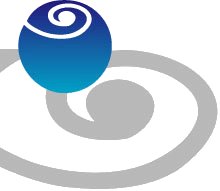Indigenous Organizations
Numerous organizations work in the Arctic on indigenous peoples rights and other subjects. They range from the Permanent Forum of the United Nations, which is of course a global organization.
The Arctic Council is a big organization for the indigenous people, it has a working group working on their issues amongst other. It is the Sustainable Development Working Group but one of its goal is to "protect and enhance the environment and the economies, culture and health of Indigenous Peoples and Arctic communities."
|
The Permanent Forum was established by the United Nations Economic and Social Council (ECOSOC) resolution 2000/22 on 28 July 2000. In this resolution, the UNPFII was given a mandate to discuss indigenous issues relating to economic and social development, culture, the environment, education, health and human rights.
The main objective of the UNPFII is to provide expert advice and recommendations on indigenous issues to the UN system through the Economic and Social Council; raise awareness and promote the integration and coordination of relevant activities within the UN system; and prepare and disseminate information on indigenous issues.
The Permanent Forum is comprised of sixteen independent experts of which eight are nominated by governments and eight directly by indigenous organizations. |
|
IWGIA was founded by human rights activists and anthropologists in 1968. The first links established were with Brazilian and Paraguayan activists. Soon after, North American Indian activists and peoples from the Arctic, Oceania and Asia joined the work. Today indigenous peoples of Russia and Africa are alsoinvolved in IWGIA's global network.
IWGIA supports indigenous peoples' pursuit for human rights, self-determination, right to territory, control of land and resources, cultural integrity, and the right to development by collaborating with indigenous peoples' organizations and documenting and publishing material on indigenous peoples' struggle for survival and recognition.
IWGIA's work with indigenous peoples is guided by a rights based approach. Human rights are a key principle for IWGIA and considered as a fundamental tool for improving the economic and political situation of indigenous peoples. |
 Arctic Council Arctic Council
The Arctic Council was established in 1996. The Arctic Council "Affirms its commitment |
|
as well as to improve the environmental, economic and social conditions of Arctic communities as a whole. |
|
Permanent Participants to the Arctic Council Indigenous peoples’ organizations have been granted Permanent Participants status in the Arctic Council. The Permanent Participants have full consultation rights in connection with the Council’s negotiations and decisions.
The Arctic Council Indigenous Peoples’ Secretariat is a support Secretariat for the International Indigenous Peoples’ Organisations that are Permanent Participants to the Arctic Council . IPS does not speak for the Permanent Participants. Instead, it creates opportunities for the Indigenous Peoples’ Organisations to speak for themselves, and helps provide them with necessary information and materials.
|
|
Other indigenous organizations in the Arctic
Inuit Tapiriit Kanatami - ITK
The Innu Nation |





















